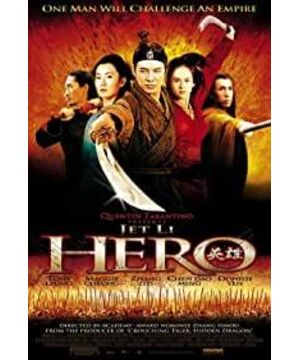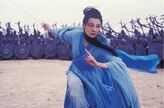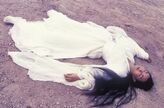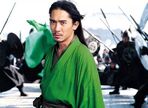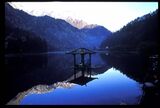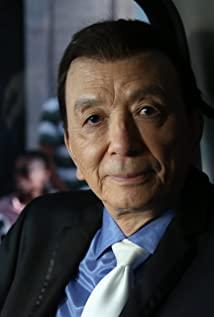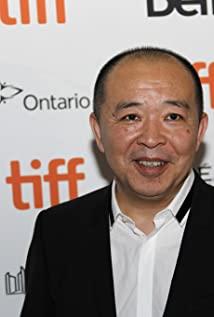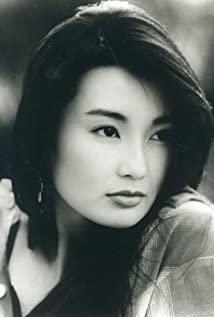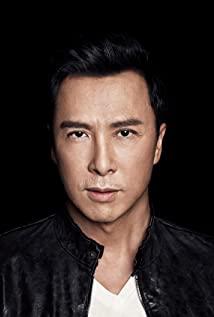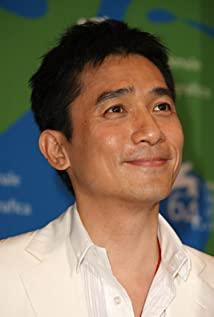What is the limit? When the arrows are pouring down, do you stand still? Or a secluded and natural Zen feeling among the green mountains and green waters? Is it the brave and tragic fearless in the desert sand? Or in the grand hall, with the mind of the world in mind? The film "Hero" directed by director Zhang Yimou in 2002 is a successful transition from an art film to a commercial film. It not only has the star lineup and production scale of commercial films, but also does not lose the unique beauty and strong shock of art films. The film "Hero" tells the story of "a knight assassinating King Qin" with dazzling colors, beautiful and smooth shots, and simple and long music. Chevalier, bravery, love for children, majestic palace towers, rolling yellow sand... This is not only a wonderful audio-visual feast, but also a cultural feast about the world and the realm. Like many of Zhang Yimou's works, "Hero" has the most prominent colors and the most subtle applications. The black hall, solemn and solemn, the majestic red "sword" character and the beating candle are the only bright colors in the hall, and the symmetrical composition shows the grandeur of the building and the insignificance of the characters. The two people in the hall were all dressed in black, and this story started slowly in the swordsman's nameless narration and Qin King's imagination. In the blue-gray inn, the wonderful battle of ideas between Wuming and Changkong is staged here. The flowing martial arts action is different from the thrilling "violent aesthetics" in Hong Kong action movies, but more of a slow and distant poetic feeling. Color montage, slow motion, and close-up of swords, strings, and water droplets make it more like a fresh and elegant ink painting. The red library, gauze tent, doors and windows, and the ground are all red, but they do not appear gaudy, but a kind of antique elegance and charm. When Ruyue seeks revenge for Feixue, the fight scene between the two in the ginkgo forest is equally exciting. The golden leaves, azure sky, and fiery red dress form a contrasting color. The unbalanced composition and the large vista show the expanse of the scene, which complements the close-up of satin, hair, and blood droplets, forming a strong visual impact. The blue water surface, the battle between the broken sword and the nameless Bihu, every drop of water, every move, every sword energy is full of Zen. The deep environment, calm lake surface, and suppressed emotions reflect the peace and rationality represented by blue. Green and white placket, which are natural, peaceful colors, symbolizing truth and life. The realm of heroes is reflected in this changing color. The word "world" written by Canjian in the yellow sand is exactly his understanding of King Qin's unification of Kyushu. A mind and a heart that longs for peace. The gorgeous colors and the complex pictures all set off the poignant and tragic music. Most of the music in the film is played by matouqin, whose sound is deep and rough, and every note complements the picture, bringing a unique aesthetic to the picture. The Battle of the Nameless Sky, the long sound of playing the piano, the sound of swords colliding, the sound of dripping water from the eaves, the sound of the wind blowing the robes... Together with the images of Go and Guqin, it brings a kind of Chinese style and charm. The scene of "all arrows fired at once" presented by the special effects technology, the combination of "sassy" arrows and the large long-range lens brings visual and auditory shocks. In the first battle of Ginkgo Forest, the combination of poignant background music and beautiful and romantic pictures shows the masculine beauty of women and the determination and tenacity of revenge. In the Battle of Bihu, close-ups of the water surface and water droplets, slow motion and water sounds are combined, and the familiar piano sounds no longer sound, creating an ethereal and tranquil atmosphere on the lake surface, which has the meaning of "silence is better than sound at this time". It is said that "Heroes" is a film that only Chinese people can understand. The ubiquitous Chinese elements in the film, such as calligraphy, swordsmanship, chess, and guqin, all contain the Buddhist and Taoist culture of "Great Enlightenment". "Enlightenment" breaks through the old spiritual realm. Their different personalities and "Rashomon" narrative structure make the story more twists and turns. Nameless perseverance, Changkong's pride, Ruyue's loyalty, Feixue's decisiveness, Canjian's desire for peace, and King Qin's heart for the world. The word "world" in the desert is by no means a simple literal meaning, and its profound meaning is more worthy of our understanding and reading. Even if it is difficult to understand for a while, the picture of the film can also cater to the taste of most audiences, bringing a strong shock. The director's unique aesthetic thoughts make the artistic features of the film better serve the theme of presentation. As an art film, "Hero" can adhere to its aesthetic concept in the era of the flood of blockbusters, thus rushing to the top of the box office; as a commercial film, "Hero" did not get lost in the wave of film transformation in the new century, but used its amazing His artistic sense perfectly interprets the true nature of heroes, arouses people's profound reflection on traditional Chinese culture, and deepens people's understanding of the "realm" of the mysterious and mysterious. It can perfectly combine the advantages of art films and commercial films. In this situation, only Zhang Yimou can have it. This "famous" hero and his works will forever be remembered in the history of film, praised and appreciated by the audience. As an art film, "Hero" can adhere to its aesthetic concept in the era of the flood of blockbusters, thus rushing to the top of the box office; as a commercial film, "Hero" did not get lost in the wave of film transformation in the new century, but used its amazing His artistic sense perfectly interprets the true nature of heroes, arouses people's profound reflection on traditional Chinese culture, and deepens people's understanding of the "realm" of the mysterious and mysterious. It can perfectly combine the advantages of art films and commercial films. In this situation, only Zhang Yimou can have it. This "famous" hero and his works will forever be remembered in the history of film, praised and appreciated by the audience.
View more about Hero reviews


